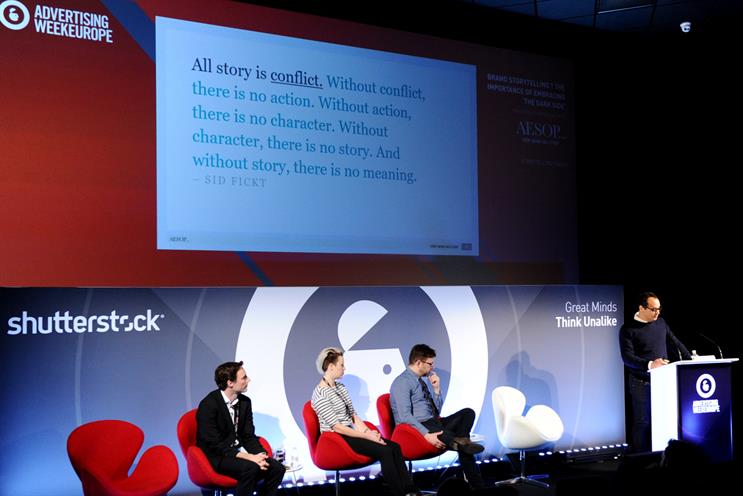
The session, titled "Brand Storytelling – the importance of embracing ‘The Dark Side'" and organised by specialist storytelling agency Aesop, saw marketers from the companies explain how they developed their brands by thinking about what they opposed.
Piers Newson-Smith, head of brand and marketing planning, Direct Line Group, said the brand was rooted in "slaying the enemy" of insurance brokers when it launched in the 80s. However, Direct Line realised that in the era of price comparison websites that no longer worked as a positioning.
Newson-Smith said: "A new enemy had emerged and no-one had noticed. This new enemy was hassle."
In response to this, the Winston Wolf character - built around the idea of the fixer - was introduced. The brand has now evolved this to challenges such as "fixing" darkness with its "Fleetlights" initiative which deploys drones to help customers drive in areas of poor light.
Lulu Skinner, the senior marketing manager EMEA at Airbnb, said: "Conflict isn’t just part of our ad strategy, it’s a fundamental part of our brand positioning, how we think about ourselves and our relationship with the world."
She explained how the positioning was developed around Airbnb's opposition to "mass tourism" that can "dull your senses".
Referencing a 2016 ad which started with the provocative line "Don’t go to Paris" to encourage people to behave like locals instead tourists during their holidays, Skinner cited this as an example of how Airbnb "leaned into" what it’s against.
"Only by doing that will peple actually connect with what you actually do stand for," she added.
Likewise, with the decision to air its "We Accept" ad – originally planned only to run on social – during this year’s Super Bowl was in direct opposition to the travel ban announced by US president Donald Trump.
Skinner pointed out that it was important to follow it up with something concrete, hence the pledge from Airbnb to house 100,000 displaced people over the next five years.




.jpg)
.jpeg)
